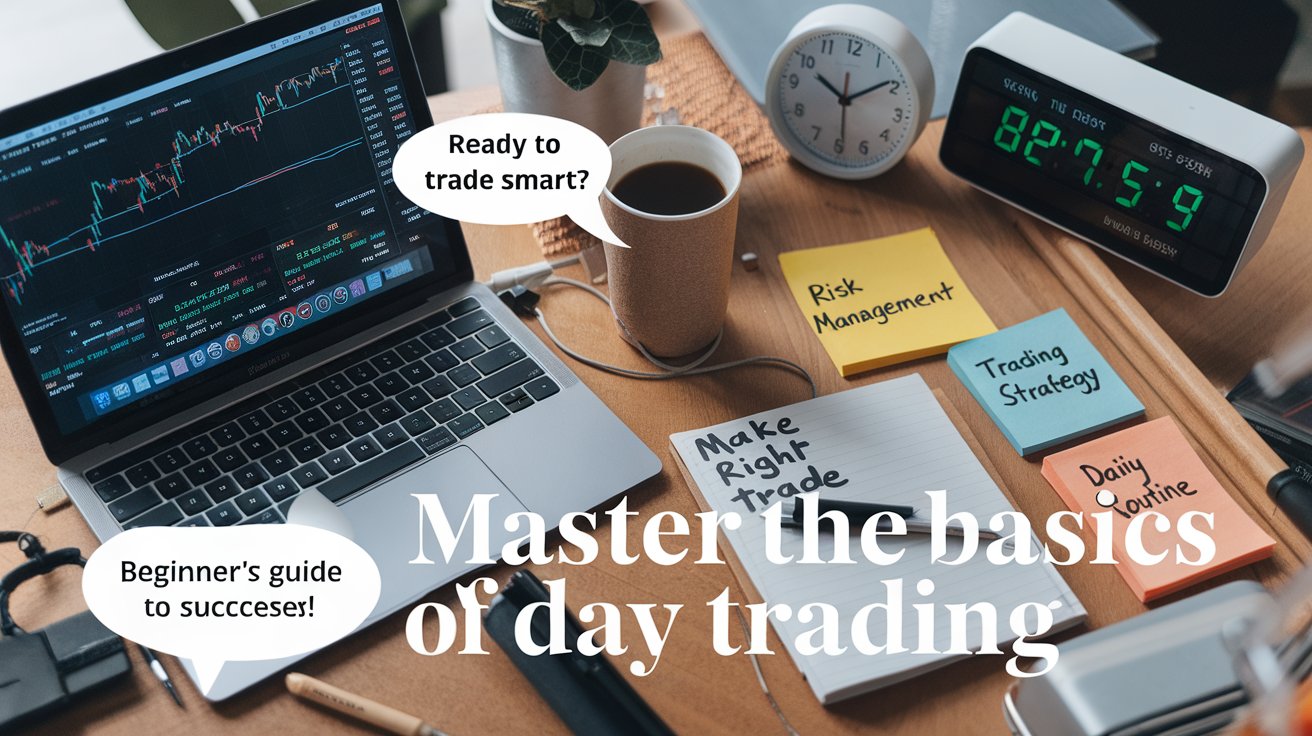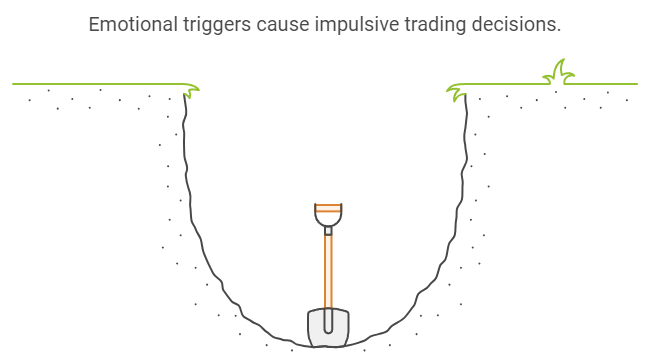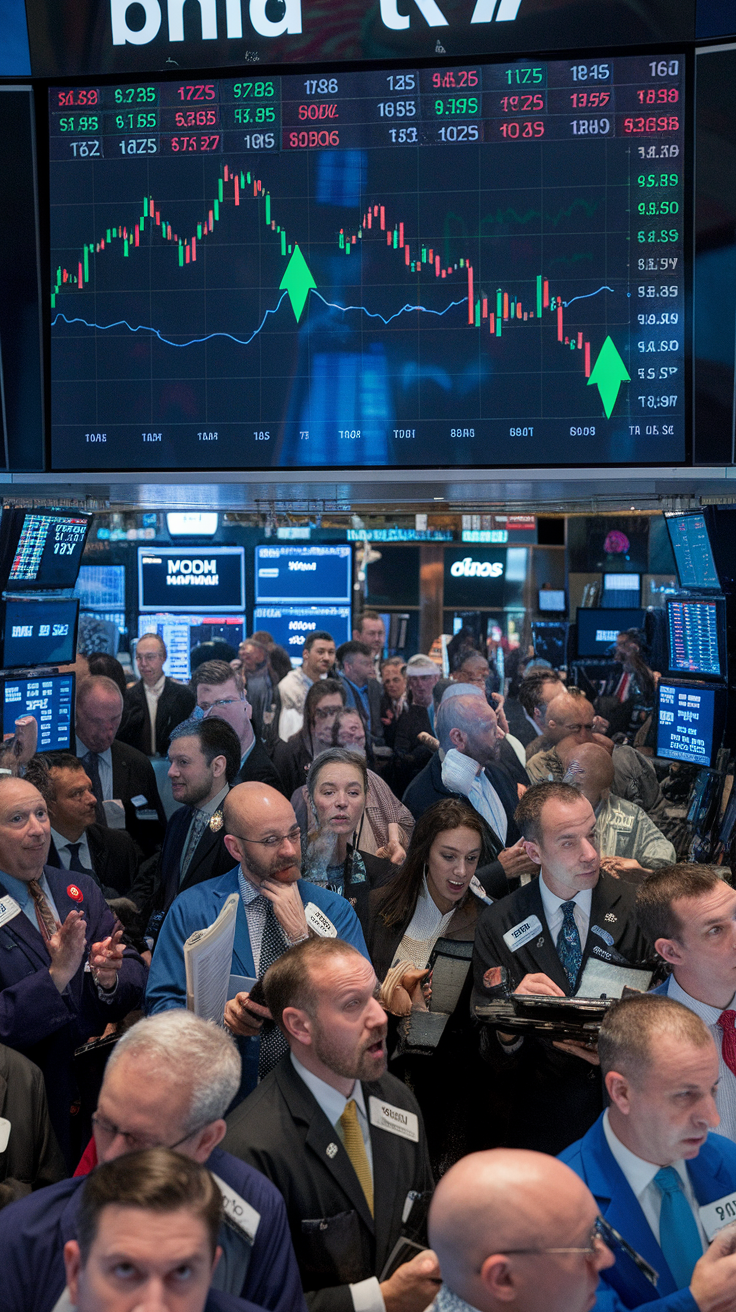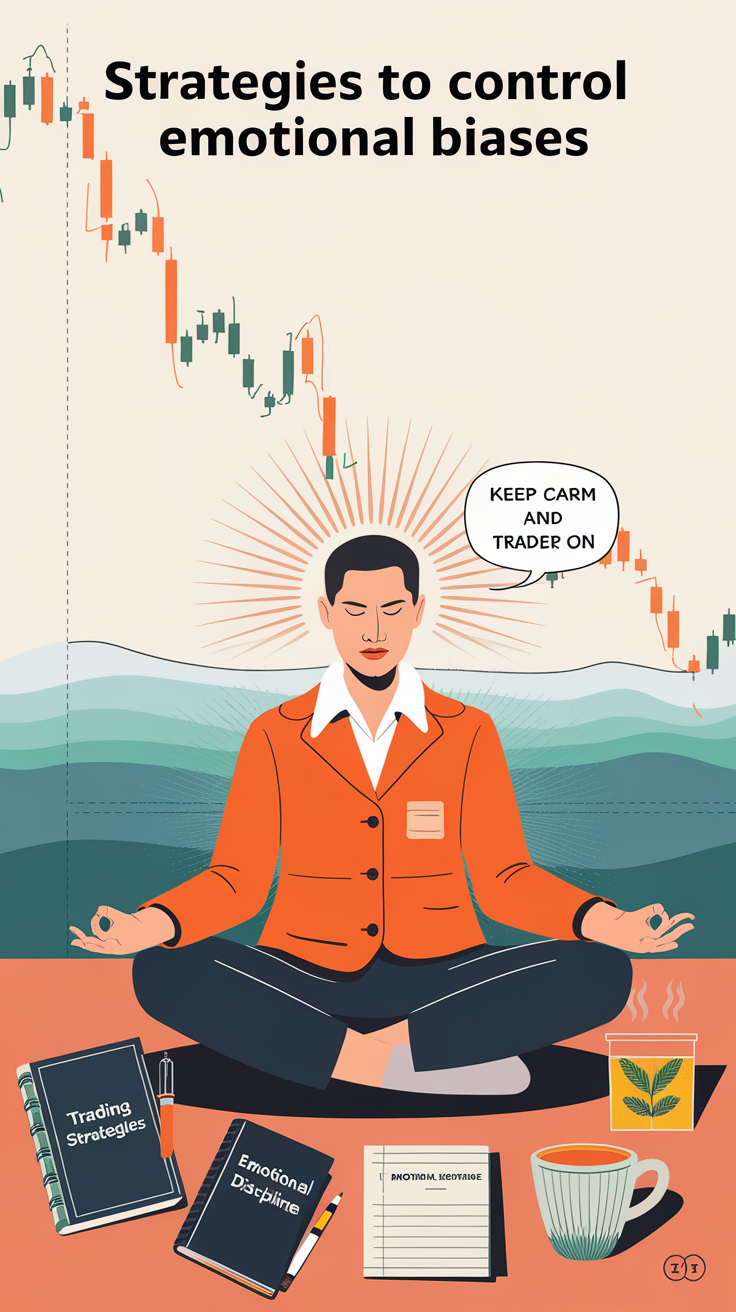Introduction
Understanding market psychology is crucial for traders looking to make informed decisions and protect their investments. Emotions like fear and greed, along with biases such as herd behavior, often drive market movements, creating opportunities and risks. By analyzing market sentiment and behavior, traders can identify trends, mitigate psychological influences, and craft strategies to navigate volatile conditions with confidence.
This blog explores the key elements of market psychology, including its influence on stock price movements and practical strategies to overcome biases in trading decisions. Through actionable insights and analysis, we aim to equip traders with the tools to leverage market sentiment effectively, ensuring long-term success and resilience against market fluctuations.
Key Takeaways
- Understanding market psychology is essential for anticipating market trends and making informed decisions.
- Emotions like fear and greed significantly influence stock price movements and market sentiment.
- Recognizing and mitigating biases such as herd mentality and loss aversion enhances trading strategies.
- Leveraging sentiment analysis tools helps traders align with emerging market dynamics.
- Developing emotional discipline is critical for rational decision-making in volatile markets.
- Incorporating psychological insights into investment strategies fosters long-term success and resilience.
Understanding Market Psychology: A Key to Smarter Trading
Market psychology refers to the collective emotions, behaviors, and decision-making processes of market participants. Understanding these psychological factors is critical for traders aiming to anticipate market trends and make informed decisions. Emotions like fear and greed often drive stock prices, causing market movements that defy logical analysis. Recognizing these patterns helps traders better navigate volatile conditions. By analyzing market sentiment and behavior, investors can identify opportunities to drive stock performance and avoid common pitfalls like panic selling or overreliance on herd behavior. This foundational understanding empowers traders to approach the stock market with confidence and strategic insight.
Exploring Emotional Drivers in Market Behavior
Emotions like fear and greed are central to understanding market psychology. These emotional forces often dictate how investors respond to market volatility, creating opportunities and risks. Traders who identify these patterns can better anticipate shifts in stock prices, enabling more strategic investment decisions. Tools such as sentiment analysis and historical data provide a structured approach to analyzing these emotional impacts, helping investors navigate complexities in the stock market.
The Role of Collective Emotions in Stock Market Trends
Collective emotions, such as optimism during a bull market or panic during a downturn, influence overall market trends. Understanding how these emotions shape investor behavior allows traders to gauge market sentiment and position themselves effectively. For example, periods of excessive enthusiasm may signal overvaluation, while widespread fear could present buying opportunities. Recognizing these collective emotional shifts is vital for developing informed strategies.
Steps to Strengthen Emotional Control in Trading
1. Practice Mindfulness for Emotional Awareness
Mindfulness techniques, such as meditation and focused breathing, help traders become aware of emotional triggers like fear or greed. This awareness reduces impulsive reactions during market fluctuations.
2. Maintain a Trading Journal
Keeping a record of trades, including the emotions felt during each decision, allows traders to identify patterns in their behavior. Over time, this practice helps in developing strategies to avoid emotional pitfalls.
3. Set Pre-Determined Limits
Establishing stop-loss and take-profit levels before entering a trade ensures decisions are driven by logic rather than emotion, even during high volatility.
4. Take Regular Breaks
Stepping away from the screen, especially during stressful trading periods, prevents emotional burnout and fosters better decision-making.
5. Rely on Data-Driven Tools
Using tools like sentiment analysis and technical indicators minimizes emotional biases, providing a structured approach to trading.
6. Seek Peer Support or Mentorship
Engaging with experienced traders or support groups can offer perspectives that counterbalance emotional reactions, improving overall trading discipline.
How Psychological Factors Influence Stock Market Movements
Psychological factors like fear, greed, and collective emotions significantly impact stock market movements. Herd mentality can lead to market bubbles or crashes, as investors follow the crowd without critical analysis. Similarly, biases like loss aversion shape decision-making, often leading to suboptimal investment strategies. Understanding the influence of these emotions allows traders to predict shifts in market dynamics and develop resilient strategies. By using tools to measure market sentiment, investors can gain valuable insights into prevailing trends, helping them make timely, data-driven decisions that align with long-term objectives.
The Impact of Herd Mentality on Investment Choices
Herd mentality drives many investors to follow the crowd, often resulting in overvalued stocks or unexpected market crashes. This behavior amplifies volatility and creates significant risks for individual traders. By recognizing the signs of herd behavior, such as rapid price movements fueled by hype, investors can avoid pitfalls and make more independent decisions aligned with their goals.
Loss Aversion and Its Effects on Decision-Making
Loss aversion, the tendency to fear losses more than valuing gains, often leads investors to hold onto failing stocks or miss profitable opportunities. This psychological bias skews rational decision-making, increasing the chances of suboptimal outcomes. Traders who develop awareness of this bias can implement strategies like stop-loss orders to mitigate its impact and maintain focus on long-term growth.
Case Study: Managing Herd Behavior During Market Volatility
In 2021, during the height of the meme stock frenzy, many inexperienced investors succumbed to herd behavior, driving stocks like GameStop and AMC to unprecedented highs. This trend was fueled by social media platforms where collective emotions such as excitement and fear of missing out (FOMO) dictated market actions. Many traders bought stocks at inflated prices, ignoring fundamental analysis, and suffered significant losses when the bubble burst.
A seasoned investor, however, approached the situation differently. Recognizing the signs of herd mentality, they analyzed sentiment data and anticipated the bubble’s peak. Instead of following the crowd, the investor sold their holdings at a strategic point, securing profits before the inevitable crash. This case highlights the importance of staying objective, leveraging sentiment analysis, and resisting emotional impulses during periods of market volatility.
Strategies to Mitigate Biases in Trading Decisions
Trading decisions are often influenced by unconscious biases, which can hinder success. Biases like overconfidence, herd behavior, and loss aversion lead to irrational market actions. To mitigate these, traders should adopt diversified strategies and utilize analysis tools to measure psychological factors affecting market sentiment. Building emotional discipline through mindfulness and maintaining a data-driven approach can counteract the impact of these biases. Understanding and addressing these behavioral tendencies is a key aspect of crafting robust investment strategies that thrive in varied market conditions.
Building Emotional Discipline for Resilient Trading
Emotional discipline is essential for mitigating biases that influence trading decisions. Techniques such as mindfulness and journaling trading behaviors help investors stay objective and reduce impulsive reactions to market fluctuations. By developing this discipline, traders create a stable mindset that fosters consistent and rational decision-making.
Leveraging Data-Driven Insights to Counteract Biases
Using data-driven approaches helps traders overcome biases by focusing on measurable trends rather than emotions. Tools like algorithmic analysis and sentiment tracking provide actionable insights, reducing the impact of cognitive errors. This structured method ensures that trading strategies remain aligned with market realities and minimizes risks associated with emotional decision-making.
“The stock market is filled with individuals who know the price of everything, but the value of nothing.” — Philip Fisher
Leveraging Market Sentiment for Better Investment Outcomes
Market sentiment reflects the collective mood of investors, offering critical insights into potential market trends. By analyzing sentiment indicators, traders can gauge the prevailing direction of the market and adjust their strategies to capitalize on shifts. For instance, a bullish sentiment often drives stock prices upward, while bearish moods signal caution. Leveraging these insights enables investors to anticipate movements and optimize decision-making. Incorporating psychological awareness into trading strategies not only enhances financial performance but also builds resilience against market volatility, fostering long-term success.
Analyzing Sentiment Indicators to Anticipate Trends
Sentiment indicators, such as the Fear & Greed Index or market surveys, offer valuable insights into investor psychology. These tools help traders identify shifts in market dynamics and align their strategies with emerging trends. Monitoring sentiment data enhances the ability to act decisively, whether capitalizing on bullish opportunities or safeguarding against bearish conditions.
Adapting Investment Strategies to Changing Sentiments
Dynamic market conditions require adaptable strategies informed by sentiment analysis. For instance, recognizing a shift from bearish to bullish sentiment can guide traders to adjust their portfolios for optimal gains. By integrating sentiment-driven insights into investment planning, traders enhance their agility and overall performance in fluctuating markets.
Conclusion
Market psychology plays a pivotal role in shaping stock market movements and influencing trading decisions. By understanding psychological factors like fear, greed, and collective emotions, traders can anticipate market trends and make more informed choices. Recognizing and mitigating biases such as herd mentality and loss aversion are essential steps toward developing effective investment strategies.
Equipped with insights into market sentiment and behavioral patterns, traders can better navigate the complexities of the financial market. By integrating psychological awareness into their decision-making processes, investors can achieve greater resilience and long-term success, even in volatile market conditions.
















